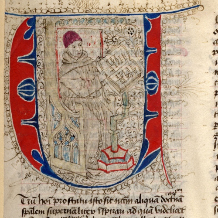Approaches to Political Theory
Module Description
The module examines the most important approaches to the study of political theory, broadly construed, and the methodological implications following from them.
Through an analysis of each of these different approaches and the debates amongst them, students are encouraged to reflect critically on their assumptions, limitations and advantages, in relation to particular research questions, starting with how they affect their formulation.
The application of each of the approaches is explored in connection to a specific political-theoretical problem. This may vary from year to year, but this is typical of the range of topics covered: human rights, freedom, power, the state, civil society, toleration.
Module Objectives
The module helps students to become more aware of, and to make explicit, the assumptions involved in the study of political theory.
The chief aims of the module are therefore:
- to familiarize students with different approaches and methods they might utilise in their own work;
- to examine the relation between substantive and methodological concerns;
- to invite students to reflect critically on their own methodological assumptions and choices;
- to show students that there is no single right way of conducting research in political theory, but a plurality of approaches, whose merits and limitations deserve consideration and critical scrutiny.
To this purpose, the course provides an introduction to contextual, genealogical, conceptual, ideological, dialectical and critical approaches, while it also invites evaluation of the strengths and weaknesses of these different approaches through a close study of seminal texts applying a particular approach to the analysis of a particular political-theoretical problem.
Preliminary Reading
David Leopold and Marc Stears (eds.), Political Theory. Methods and Approaches (Oxford: Oxford University Press, 2008).
Assessment
One essay of 4000 words (100% of total mark).
Every year our students' feedback helps us to improve our modules
“The module was very interesting and everyone was encouraged to participate.”

